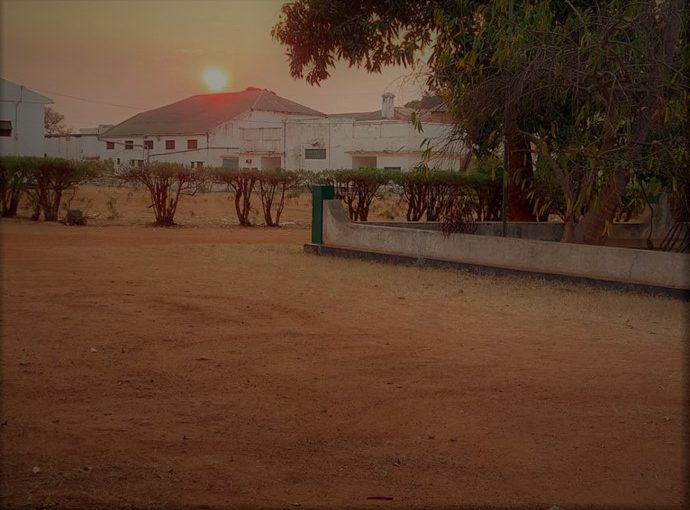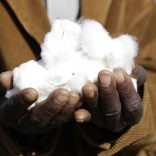Mozambique: President wants increased agricultural production to reduce imports
Cabo Delgado court begins sale of assets of former cotton giant Plexus Mozambique

FILE - For illustration purposes only. [File photo: Plexus Mozambique]
Cabo Delgado Judicial Court this Tuesday begins auctioning off ten groups of buildings belonging to the now-extinct Plexus, once one of Mozambique’s leading cotton companies, and hope to raise around €6.6 million.
At issue are the insolvency proceedings of Plexus, previously owned by a British business group and whose operations were halted in 2022, leaving thousands of cotton farmers in Cabo Delgado unable to sell their product, in addition to having debts of 515 million meticais (€6.9 million), according to the recovery plan released the following year.
The British group cited losses caused by successive cyclones in the region and the impact of armed violence in Cabo Delgado to justify its deteriorating financial performance since 2016 and the closure of operations in 2022.
It is estimated that approximately 200 workers were left with unpaid wages, and that 50,000 cotton farmers in Cabo Delgado have been struggling since 2022 to transport the raw material they previously supplied to Plexus.
READ : Mozambique: British cotton company pulling out of Cabo Delgado – AIM report
Plexus Cotton sells Plexus Mozambique
In 2023, an agreement was announced with the Portuguese company Felpinter to manage the local cotton business, including two processing units with a capacity of 45,000 tons per year.
The notice for the sale process, which begins today, includes the sale of ten groups of buildings in various locations in Cabo Delgado, which were part of the former brand’s assets, totalling a reserve value of 488.8 million meticais (€6.6 million).
In 2023, the Cabo Delgado Judicial Court revealed that 95% of Plexus’s known debts were owed to four banks: Moza Banco, BCI, Access Bank, and Société Générale.
Moza was then owed 197 million meticais (€2.7 million); BCI: 127 million (€1.7 million); Access Bank: 110 million (€1.5 million); and Société Générale: 58 million (€813,000).
In addition to the banks, 3.4 million meticais (approximately €48,000) in unpaid salaries were identified at the time, with the remainder owed to tax authorities and social security.
Cotton exports, Mozambique’s main cash crop, generated US$120.9 million (€103 million) over the past five years, but fell by more than half in 2024, according to official data reported by Lusa in July.
According to a Bank of Mozambique balance of payments report, exports fell to US$14.2 million (€12 million) in 2024, the lowest annual figure in at least five years.
According to data provided to Lusa in 2024 by Francisco Ferreira dos Santos, president of the Mozambique Cotton Association (AAM), cotton in Mozambique had represented an annual average of US$30 to US$50 million (€25 to €42.6 million) in exports over the previous ten years, making it a vital crop: “It has an enormous value chain (…) it is an almost sacred crop, with a catalytic effect on the economy and demographics.”
Mozambique represents less than 0.5% of global cotton production, in a market led by countries such as the United States, China, and India.
Cotton production in Mozambique grew 2% in 2024 compared to the previous year, reaching 24,000 tons, but missed the targets set for the sector, according to budget execution data from the Ministry of Finance.
Cotton production, one of the country’s staple crops, fell short of the projected 40,000 tons, meeting only 60% of the target, although above the 23,516 tons achieved in 2023.
Cotton production area in Mozambique grew from 95,097 hectares in 2023 to 96,523 hectares last year.












Leave a Reply
Be the First to Comment!
You must be logged in to post a comment.
You must be logged in to post a comment.